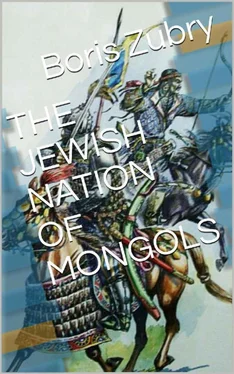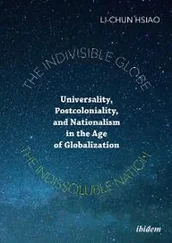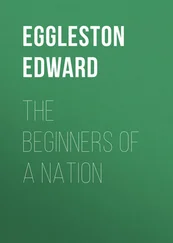kosher , not for the righteous mind. Violence was not in his bones. Jews, and, especially, the religious ones, were not violent. The unprovoked violence and of those proportions were not the Jewish trade. That was for barbarians. Jews did not run around on horses, like crazies, killing everything in sight. Never ever. Well, maybe thousands of years ago… Yet, that was in self-defense, and he was not around yet. It was back then. That was needed for the nation to survive. Not now. Well, maybe in Israel… That’s in self-defense as well. That was still needed for the nation to survive. Every nation has the right to defend itself, to survive. They did it out of necessity; there was no pleasure in it. All Jews were good Jews, only some were somewhat better. The religious ones… Even the sports were not promoted in the community. Have you ever seen a
Hasidic Jew wearing the
Yarmulke (a skullcap worn all the time by Orthodox Jews or during prayer by other Jewish men), and the
Tzitzit (a wool vest-like piece of clothing with fringes at its four corners) fighting in a ring as a boxer? Yeah… Playing football? Soccer? Exactly. Ah…, you see now?
Gornisht (nothing). This is what I am talking about. None of it was
kosher by any standard, and Aaron was a good Jew with only peace on his mind and not the blood of war. And, the killings with a sword and a spear, and a knife. Cutting the throats of the dying people. The blood, and the mutilated bodies as far as you can see. The dead and the crazed horses. The dead and the crazed people. He never discussed it with the Rabbi, but this was obvious to anyone. What was there to discuss? The violent dreams and the
Hasidic Jews did not go together. Never. How could they? What is it — the Russians, the Cossacks? The Germans? God forbid… No, it was not the
Hasidic thing to do. Why would it be? Where would it come from? It was the
meshugass (madness, insanity, craze). It sounded like a contradiction of terms. It was impossible.
Me ken brechen! (you can vomit from this!). Many probably would if they saw it. Aaron worried, but there was no one to discuss it with. His wife, Leah, will start crying. That’s what she always did when she was scared and confused. His mother, Miriam, will start cursing everything and everyone. That’s what she always had done when she was scared and confused. No one would be safe. His father, Yossel, oh, forget about him. Aaron would not even go to him. That would be even more
meshuga (crazy) than the dreams. Why him, why the dreams? He should dream of better things, God, and the family. Dream of the kids, the next holiday, and the great feast, Leah was going to make. He liked that. She was a good cook — the fusion of all cuisines, but kosher. Still, something had to be done. Maybe there was a pill or something he could take, and the dream would go away. It started to affect his work, and, even when he prayed, he would drift into a dream-like state where the strangely dressed people were killing each other. In the most horrifying way… And, when he was praying… That was the worst of it. Was God offended by that? Of course, he was. Who would not? God would not miss that, not their god. God saw everything and knew everything. He was not God for nothing. He was the only God.
Baruch Asheim! Screams, horses, death, and the smell of blood were following Aaron just about everywhere. He could smell it at home, at work, in the shops, on the street, and even in the synagogue. Well, the butcher shops he could understand, but the bookstore selling the religious books was not the right place for that smell. That smell was becoming a permanent part of his life now. That smell of blood, of death, of the struggle, and the fright, was appalling. But it was always there. Oh, God, was not it enough? Please, give me a break. God… He worked as a bookkeeper for ten hours a day just to support the family, and he prayed and studies the Torah all the time. There was no time left for foolishness, for bad dreams, and going crazy. Was he going crazy? He had to feed the family. That was the most important obligation of a Jewish man. God, and the family. Five children were not a joke, not by any measure. He was blessed, but was not this a little too much, not that he was complaining. Sometimes you are blessed and sometimes not, but sometimes you are blessed too much. He would talk to the Rabbi. Rabbi Shlamowitz was a brilliant man, and he would help if he could. He may know what to do. He hears things and knows his way around of problems. He could know a prayer for something like that or a good doctor that has a pill. There should be something somewhere. He was not a Rabbi for nothing, and that’s for sure.
Aaron’s great grandparents, Mirke and Itzik Cohen, became the members of the HASIDIC movement years ago, in the late 1800s. It happened when they were still living in Belorussia that, at the time, was a part of the Russian Tsarist Pale of Settlement (the Russian Jews were forced to live there by the Royal Decree, and the exemptions were rare). In that Shtetl , everyone was somewhat related and a Hasid yet, some were more, and some were less. So, Aaron’s beliefs were inherited from the great grandparents and came together with the Jewish culture, customs, Yiddish language, and the looks. Aaron was a smallish man of 5’3 and about 100 lb., with slightly bolding, but wildly curling reddish hair, long bonny nose, dark brown eyes, and thick glasses. And, he was blessed with the long wavy payos (sidelocks) growing down almost to the shoulders. That meant something to the Hasidic Jews . That added something to the man, even a slightly built one. He was righteous. Dressed in the full Hasidic uniform of a black kaftan — a long flowing black frock coat, and a fur hat, he presented a small, but, nevertheless, an exclusive prize of the Jewish nation. Everyone knew that he belonged, and he knew it better than anyone else. He was one of the chosen ones. What made him so different from the other men? Whatever made him so different from the other men readied him as an exclusive prize. Even such a small man, in the crowd, he stood out, and that’s where his place was. He was somewhat elevated even when he was among the elevated men. There definitely was something different about him. He was noticed. Aaron was one of the chosen people, he cherished it, and was so proud of it. How often do you get to be chosen? It could happen only once in a lifetime, and not with everyone. Yet, Jews, for better or worse, were chosen by God, and God had his reasons.
The Cohen family immigrated to America in 1905, settling down in the Bronx of New York City first and moving to the Williamsburg area of Brooklyn later. This was the perfect place for the Hasidic Jews , and many called it the shtetl of Williamsburg. Where they right? Maybe, and some say yes. That was a funny name for such a prominent place and in America. To many, it was the Garden of Eden or the closest to that one could find in such short order. There, in this new shtetl , nearly everyone was a Hasid in one way or another, and many even were relatives. After all, most of these people there came from Eastern Europe directly or through Western Europe. That took somewhat longer, but the result was the same. What could you do, so you did what you could. Still, you arrived at the right place and could enjoy what was there, in America. Even if you had so little that it was mostly nothing or even less, one could appreciate that without being discriminated and pushed around. No one threatened your existence, and your children could run around free. Freedom had a different meaning. It actually existed. It resided here, in America. Yet, you needed to provide, and that could be a challenge, but you could find the way. People around mostly were friendly and, even when not, they did not turn away when you asked for help.
Читать дальше











